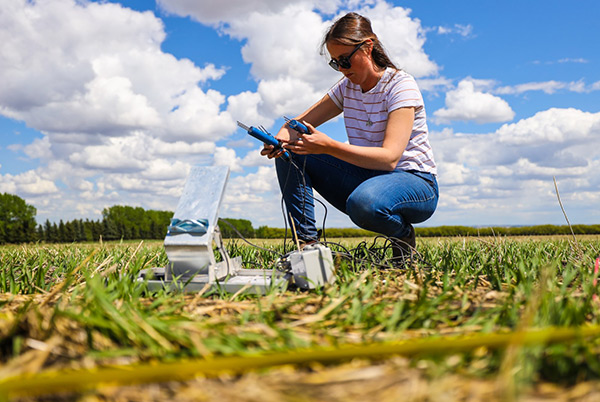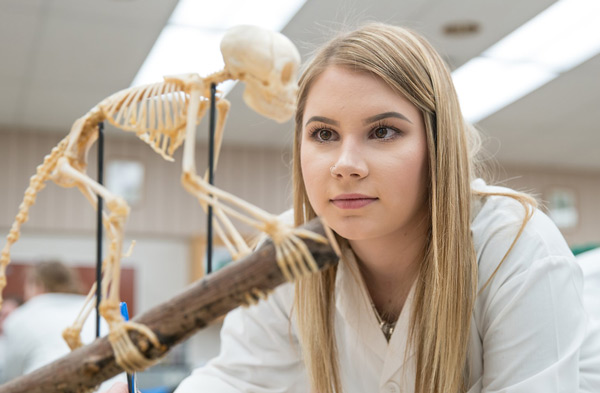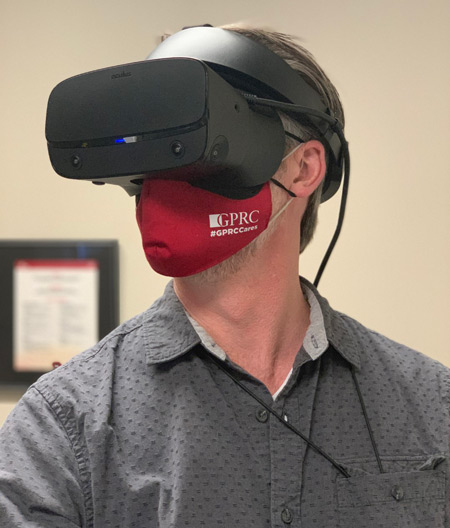March 30, 2021 – As Alberta’s economy recovers and moves forward, Alberta’s colleges are ready to lead the way, providing real world experience and cutting-edge research to support Albertans and the communities where they live.
Alberta’s colleges are teaching skills to students that prepare them to enter the provincial workforce and are working closely with partners to ensure programs offer the hands-on, comprehensive training that meets industry needs. And Alberta’s colleges are providing research that keeps local businesses on the leading edge, contributing to the health of the provincial economy.

“Alberta’s colleges play a vital role in the prosperity of our province,” comments Stuart Cullum, President, Olds College. “Working with industry partners, staff, faculty, students and government we provide opportunities for applied research and hands-on, high-tech learning experiences for students that produce the skilled work-force that Alberta needs.”

Alberta’s colleges are quick to respond to the needs of the labour market by updating curriculum, adopting emerging technologies or creating new programs to meet industry demand. Medicine Hat, NorQuest, Red Deer, Grande Prairie and Lakeland are among the colleges launching new programs in Fall 2021, in areas as varied as health care, science, agriculture, accounting and humanities. New technologies – such as Bow Valley College’s adoption of virtual reality technology into its Practical Nurse program, and Red Deer College’s High Fidelity Simulation Lab, which creates complex and realistic scenarios for health care students, give students the skills needed to excel in industry.
“We are always looking for opportunities to innovate, grow and provide value for our learners, our industry partners and our community,” says Dr. Misheck Mwaba, President and CEO, Bow Valley College.
In addition to training workers, Alberta’s colleges also play a key role in solving industry challenges through applied research and innovative partnerships. Lethbridge College, Olds College and Bow Valley College are all ranked among Canada’s top 50 research colleges, with Bow Valley and Lethbridge both placing in the top three nationally for fastest growing research colleges in 2020.

Lethbridge College’s Integrated Agriculture Technology Centre connects small- and medium-sized agriculture enterprises with technologies and research expertise at the college, while Olds College’s Centre for Innovation and Smart Farm play a leadership role in industry-led agriculture technology applied research activities. Grande Prairie Regional College recently celebrated the establishment of the Evaskevich Centre for Health Research and Innovation, which provides work-integrated learning opportunities integral to advancing rural, northern and Indigenous health research.
“These centres show our province’s industry partners that we are here to support their needs and find solutions to the challenges they face,” says Dr. Paula Burns, President and CEO, Lethbridge College. “Our colleges support and enhance businesses in Alberta and provide a boost to the provincial economy.” Alberta’s colleges are committed to ensuring education is accessible to all Albertans.

Portage College is collaborating with Indigenous communities to support Cenovus Energy Inc.’s Indigenous Housing Initiative through a 24-week Construction and Trades Readiness program; it is also partnering with Conestoga College and the Government of Canada to offer tuition-free programming aimed at developing tradespeople. Meanwhile, Northern Lakes College supports a vast region of northern Alberta through its Supported Distance Learning delivery model, which is about meeting every student need, wherever the student may be.
All these attributes have led to a world-class collaborative and integrated college system in Alberta. These colleges meet the needs not just of domestic students but also of a growing international student base who sees opportunity in Alberta. International students at Medicine Hat College are well-supported through various initiatives, while Intercultural Development Training and the certificate in Global and Intercultural Studies are offered to all MHC students to encourage intercultural skills development.
Meanwhile, NorQuest College is one of four post-secondary institutions in Canada participating in a two-year pilot program that integrates English language learning with health-care aide training, enabling Albertans with English language barriers to access specialized and comprehensive education. And Keyano College offers Caucuses, which are open, safe, equitable and inclusive spaces for marginalized voices.
Through these many varied activities, and countless other initiatives, Alberta’s CCCs are ensuring they remain active and relevant to meet the needs of learners and the provincial economy.
-30-
Alberta’s 11 Comprehensive Community Colleges (Bow Valley College, Grande Prairie Regional College, Keyano College, Lakeland College, Lethbridge College, Medicine Hat College, NorQuest College, Northern Lakes College, Olds College, Portage College and Red Deer College) meet the needs of more than 55,000 learners across the entire province, providing relevant, high-quality programs that benefit both local and provincial economies.